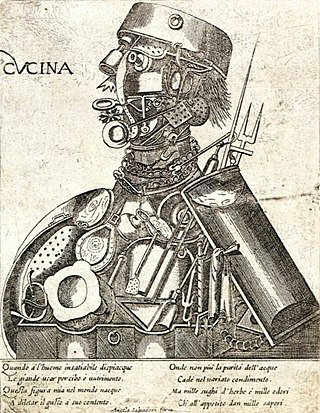
Cyberspace is an interconnected digital environment. It is a type of virtual world popularized with the rise of the Internet. The term entered popular culture from science fiction and the arts but is now used by technology strategists, security professionals, governments, military and industry leaders and entrepreneurs to describe the domain of the global technology environment, commonly defined as standing for the global network of interdependent information technology infrastructures, telecommunications networks and computer processing systems. Others consider cyberspace to be just a notional environment in which communication over computer networks occurs. The word became popular in the 1990s when the use of the Internet, networking, and digital communication were all growing dramatically; the term cyberspace was able to represent the many new ideas and phenomena that were emerging. As a social experience, individuals can interact, exchange ideas, share information, provide social support, conduct business, direct actions, create artistic media, play games, engage in political discussion, and so on, using this global network. Cyberspace users are sometimes referred to as cybernauts.

Technology is the application of conceptual knowledge for achieving practical goals, especially in a reproducible way. The word technology can also mean the products resulting from such efforts, including both tangible tools such as utensils or machines, and intangible ones such as software. Technology plays a critical role in science, engineering, and everyday life.

Sherry Turkle is an American sociologist. She is the Abby Rockefeller Mauzé Professor of the Social Studies of Science and Technology at the Massachusetts Institute of Technology. She obtained a BA in social studies and later a PhD in sociology and personality psychology at Harvard University. She now focuses her research on psychoanalysis and human-technology interaction. She has written several books focusing on the psychology of human relationships with technology, especially in the realm of how people relate to computational objects. Her memoir 'Empathy Diaries' received excellent critical reviews.

Internet culture is a quasi-underground culture developed and maintained among frequent and active users of the Internet who primarily communicate with one another online as members of online communities; that is, a culture whose influence is "mediated by computer screens" and information communication technology, specifically the Internet.
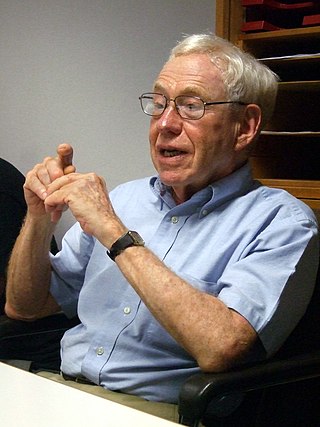
Hubert Lederer Dreyfus was an American philosopher and professor of philosophy at the University of California, Berkeley. His main interests included phenomenology, existentialism and the philosophy of both psychology and literature, as well as the philosophical implications of artificial intelligence. He was widely known for his exegesis of Martin Heidegger, which critics labeled "Dreydegger".
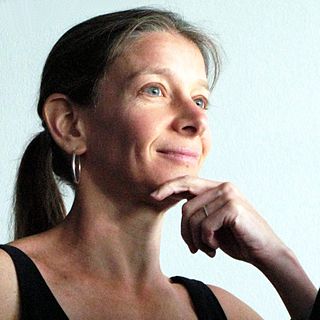
Judith Stefania Donath is a fellow at Harvard's Berkman Center, and the founder of the Sociable Media Group at the MIT Media Lab. She has written papers on various aspects of the Internet and its social impact, such as Internet society and community, interfaces, virtual identity issues, and other forms of collaboration that have become manifest with the advent of connected computing.
Computer ethics is a part of practical philosophy concerned with how computing professionals should make decisions regarding professional and social conduct.
Digital anthropology is the anthropological study of the relationship between humans and digital-era technology. The field is new, and thus has a variety of names with a variety of emphases. These include techno-anthropology, digital ethnography, cyberanthropology, and virtual anthropology.
Alan Sondheim is a poet, critic, musician, artist, and theorist of cyberspace from the United States.
Criticism of technology is an analysis of adverse impacts of industrial and digital technologies. It is argued that, in all advanced industrial societies, technology becomes a means of domination, control, and exploitation, or more generally something which threatens the survival of humanity. Some of the technology opposed by the most radical critics may include everyday household products, such as refrigerators, computers, and medication. However, criticism of technology comes in many shades.
The ethics of artificial intelligence is the branch of the ethics of technology specific to artificial intelligence (AI) systems.
Cybermethodology is a newly emergent field that focuses on the creative development and use of computational and technological research methodologies for the analysis of next-generation data sources such as the Internet. The first formal academic program in Cybermethodology is being developed by the University of California, Los Angeles.
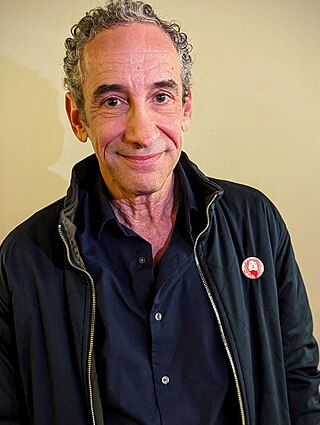
Douglas Mark Rushkoff is an American media theorist, writer, columnist, lecturer, graphic novelist, and documentarian. He is best known for his association with the early cyberpunk culture and his advocacy of open-source solutions to social problems.
Philip E. Agre is an American AI researcher and humanities professor, formerly a faculty member at the University of California, Los Angeles. He is known for his critiques of technology. He was successively the publisher of The Network Observer (TNO) and The Red Rock Eater News Service (RRE). TNO ran from January 1994 to July 1996. RRE, an influential mailing list he started in the mid-1990s, ran for around a decade. A mix of news, Internet policy and politics, RRE served as a model for many of today's political blogs and online newsletters.
Cyber-utopianism or web-utopianism or digital utopianism or utopian internet is a subcategory of technological utopianism and the belief that online communication helps bring about a more decentralized, democratic, and libertarian society. The desired values may also be privacy and anonymity, freedom of expression, access to culture and information or also socialist ideals leading to digital socialism.
In the philosophy of artificial intelligence, GOFAI is classical symbolic AI, as opposed to other approaches, such as neural networks, situated robotics, narrow symbolic AI or neuro-symbolic AI. The term was coined by philosopher John Haugeland in his 1985 book Artificial Intelligence: The Very Idea.

Mark Coeckelbergh is a Belgian philosopher of technology. He is Professor of Philosophy of Media and Technology at the Department of Philosophy of the University of Vienna and former President of the Society for Philosophy and Technology. He was previously Professor of Technology and Social Responsibility at De Montfort University in Leicester, UK, Managing Director of the 3TU Centre for Ethics and Technology, and a member of the Philosophy Department of the University of Twente. Before moving to Austria, he has lived and worked in Belgium, the UK, and the Netherlands. He is the author of several books, including Growing Moral Relations (2012), Human Being @ Risk (2013), Environmental Skill (2015), Money Machines (2015), New Romantic Cyborgs (2017), Moved by Machines (2019), the textbook Introduction to Philosophy of Technology (2019), and AI Ethics (2020). He has written many articles and is an expert in ethics of artificial intelligence. He is best known for his work in philosophy of technology and ethics of robotics and artificial intelligence (AI), he has also published in the areas of moral philosophy and environmental philosophy.
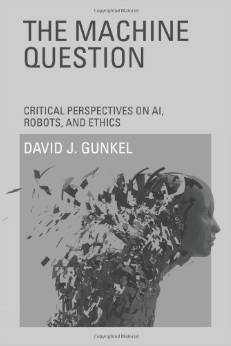
The Machine Question: Critical Perspectives on AI, Robots, and Ethics is a 2012 nonfiction book by David J. Gunkel that discusses the evolution of the theory of human ethical responsibilities toward non-human things and to what extent intelligent, autonomous machines can be considered to have legitimate moral responsibilities and what legitimate claims to moral consideration they can hold. The book was awarded as the 2012 Best Single Authored Book by the Communication Ethics Division of the National Communication Association.
Kenneth Einar Himma is an American philosopher, author, lawyer, academic and lecturer.

Julie Carpenter, born Julie Gwyn Wajdyk, is an American researcher whose work focuses on human behavior with emerging technologies, especially within vulnerable and marginalized populations. She is best known for her work in human attachment to robots and other forms of artificial intelligence.










